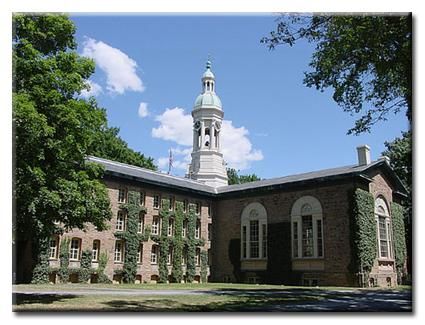By Philip Sean Curran, Staff Writer
Princeton University is scheduled to go on trial later this month in New Jersey tax court to defend its property tax exemption, in a closely watched lawsuit that a coalition of residents filed to make Nassau Hall pay more real estate taxes.
The case was due to start Thursday, but instead has been pushed back to Oct.17, before a judge who so far has rebuffed past attempts by the university to have the litigation thrown out. The two sides continue to try to settle the suit to avoid a trial and resolve a matter without enduring the uncertainty of a protracted legal battle that could end up at the state Supreme Court.
Attorney Bruce I. Afran, the attorney for the four residents who brought the case, said Friday that both sides are preparing to go to trial. For its part, the university had no comment.
The possibility of the university, one of the wealthiest colleges in the world with an endowment in excess of $22 billion, having to pay more in property taxes would affect the tax structure of Princeton, a community reliant on residents to foot the bill for public schools and municipal and county government.
Former Borough Councilman Roger Martindell, a close observer of the lawsuit, said Friday that if the university loses its exemption entirely, tax bills in town would go down by about a third. He does not think that outcome is “likely,” in his words.
“If I were betting person and if the matter goes to trial, I would bet that the university will keep its tax exempt status as an institution,” he said. “But that a number of its properties would be returned to the tax rolls by the court. And the only question, in that case, is how many properties and what value and how does that value reduce the tax burden to the taxpayers of Princeton.”
Based on his experience as a lawyer, he said most cases get settled, with settlement discussions occurring right up to the start of trial. Parties seek to cut their legal expenses and avoid the certainty that a trial and subsequent appeal would bring.
The lawsuit is challenging the property tax exempt status of the university on the grounds that the school rents out buildings for private events, engages in profit sharing with its professors on the royalties from their research and engages in other commercial conduct.
For its part, the municipality is technically a defendant in the case since the residents are challenging the municipal tax assessor’s decision to exempt the school’s properties. The town, at least for now, has remained neutral, although one official, Councilwoman Jenny Crumiller, is openly rooting for the residents to prevail.
“If the plaintiffs win, we all win,” Ms. Crumiller said Friday in adding that she was talking for herself and not the full governing body. “I think it’s going to be interesting. I don’t think there’s any doubt we’re on the side of our taxpayers.”
The council is scheduled to have a closed session meeting Tuesday at 10 a.m. — two days before the trial is supposed to start — to discuss the case. Councilwoman Jo S. Butler said Friday the meeting is so the council can get an update from its attorney.
The lawsuit is being watched with close attention by the higher education community in the state. Rutgers University, the long-time rival of Princeton, filed a friend of court brief in support of Nassau Hall.
“It’s certainly a case we’re following, we’re following it with a lot of interest,” said Michael W. Klein, executive director of the New Jersey Association of State Colleges and Universities, by phone Friday.
State Assemblyman Reed Gusciora, (D-15), has proposed legislation to prevent someone from filing a tax appeal against another person’s property, a move that would have blocked challenges of the kind Princeton University is facing. A companion bill also has been proposed in the state Senate.
Mr. Gusciora, who used to represent Princeton before redistricting, received a sharp response against the proposal. In a phone interview Friday, he said his bill was intended to protect hospitals, and that it never was meant to exempt colleges and universities. He said the measure is being held in committee and that it would be amended to reflect his intentions.
For his part, Mr. Gusciora, who still owns property in Princeton, said he supports the residents’ lawsuit.
“Princeton University,” he said, “should be paying their fair share, like I do.”

